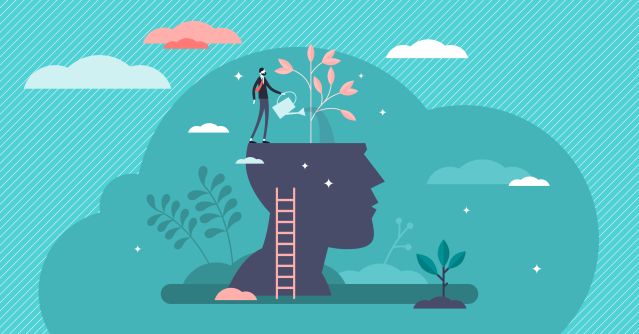Free Will
The Strongest Neuroscience Arguments in the Free Will Debate
Can we choose the experiences that shape us, or are those choices determined?
Updated February 7, 2024 Reviewed by Abigail Fagan
Key points
- Our brains have biases and proclivities—shaped by our genes, and further shaped by experience and learning.
- We can’t choose our genes, but perhaps we can choose the experiences that shape our predispositions.
- Or perhaps those choices are determined by our predispositions and circumstances beyond our control.
In Part 1 of this two-part series on the free will debate, we contrasted a position of hard determinism, represented by the biologist Robert Sapolsky,1 and a defense of free will by the neurogeneticist Kevin Mitchell.2 The positions of these two experts are representative of the most neuroscientifically-informed arguments for and against free will.3
Sapolsky and Mitchell agree that we are shaped by genetic predispositions, and those predispositions become further shaped by experience and learning. They differ on whether our predispositions completely determine our behavior or merely influence it.4
In Part 2 we will ask: Can we influence the shaping of our predispositions? We cannot choose our genes, but can we freely choose our experiences, to shape and nurture who we become? Or are those choices themselves determined by our predispositions, and by circumstances beyond our control?

Automation vs. deliberation
Many behaviors are driven automatically by unconscious reflexive, innate behaviors and habits. The behaviors of interest in the free will debate are mainly our conscious deliberative actions.5 Mitchell argues that we exercise free will when making high level, complex decisions in novel situations. We consciously take the wheel and make careful deliberative choices.
Doing things for reasons
Mitchell argues that all organisms, even those lacking any form of consciousness, have agency and do things for reasons, driven by the survival value of an action.6 As organisms evolved nervous systems with the ability to form internal representations (see Part 1), more complex forms of value and meaning could be embodied in those representations, and the relative value of different choices could be weighed.
Humans do things for highly complex reasons, because we have extra layers of cognition and metacognition enabling very advanced deliberative capabilities.7
Cognitive states, including beliefs and desires, are real and have causal power
As explained in Part 1, Mitchell argues that there’s enough indeterminacy in the system that we can conclude that neuronal decisions are not just a predetermined physical outcome; it’s the whole organism deciding things for reasons that matter at the level of the organism. Cognition is the product of higher-level patterns and organization in the system and, Mitchell stresses, it's the meaning of those patterns that drives the system. Beliefs and desires, which are cognitive states, are real, he emphasizes, and they have causal power in the system.
But how did we become the sort of person who would make a particular choice?
The fundamental difference between Mitchell’s and Sapolsky’s views on free will is how the choosing of an action takes place.8 Sapolsky notes that when we choose, we are expressing our values. How did we become the sort of person who has those values and who would generate those options and choose the option that we did? Why did we give more weight to those values and reasons? Sapolsky argues that it is determined by all the genetic and environmental factors along the way—our predispositions.
Influenced but not determined
Mitchell thinks we’re not completely controlled by our predispositions. He agrees that they do influence, shape and bias our choices, but he doesn’t think they determine them. We do still make a choice, with relative degrees of freedom. He doesn't think that the prior influences narrow down the choices to just one option. Sapolsky does think that the prior influences determine our choices. But he argues that even if they didn’t, as Mitchell supposes, our prior history would still impose a filter of values, meanings, etc. on the choices available to us, such that it would be practically inevitable that we would make the choice we did.
Becoming ourselves
Mitchell discusses in his book9 how our predispositions define our personality traits. They shape our behavior throughout our lives. He notes that being a self must involve constraints. If we were completely unconstrained by predispositions—completely free in our will—we would lack any continuity. We would not be a self. A self has continuity, and each goal is constrained partly by the history of that self and its prior goals.
As Mitchell sees it, our predispositions do influence the way our moral character emerges, but character needs to be actively developed—through the accumulating effects of the actions we choose, the habits we form, and the experiences to which we are exposed. He suggests that even though we are not completely in control of all this, we do have agency, the ability to make choices along the way, and in so doing to influence the development of our character.
Yet, the question that cannot be satisfactorily addressed by Mitchell (or anyone else), is how free those choices themselves are from our predispositions. For example, if by temperament, you struggle with self-control—as a great many people do, others may tell you to improve this by consistently practicing habits of greater self-control (analogous to exercising to improve your fitness). But the ability to do so requires self-control. On the other hand, having an over-controlled temperament also causes many difficulties and cannot simply be willfully moderated.
Furthermore, our circumstances are frequently beyond our control, and when we do choose them, those choices too may be heavily shaped by our predispositions.
Complex multifactorial explanations
Sapolsky points out that there are clear cases of abnormal behavior in which it’s easy to identify deterministic causes, such as the effects of a drug or a specific brain injury. But for most abnormal and normal behaviors the determinants are multiple and complex. That doesn’t make them any less deterministic. We just have a difficult time wrapping our heads around complex multifactorial explanations.
Do we know the real reasons why we do things?
Mitchell argues that there are many examples in our daily lives in which we can explain our deliberative decisions very well, because we have thought about them carefully and we are conscious of our reasons.
Sapolsky counters with examples from controlled experiments in which people stated what they believed to be the real reasons for their actions, but in fact it was known by the experimenters, who had manipulated the situation, that those reasons were confabulated or misattributed. As a psychiatrist, I not infrequently encounter many instances of people clearly misattributing the causes of their behaviors and emotions.
Mitchell concedes that there are certainly many cases in which the real factors or motives for our decisions are outside of our conscious awareness. But he contends that this does not mean that we are never conscious of our reasons or in control of our choices.
Self-control
Mitchell agrees that people differ greatly in their characteristic capacity for self-control. For him, this fact strengthens rather than weakens the argument that free will is real and that it manifests as degrees of freedom that differ from individual to individual.
It’s worth noting here that self-control is not the same thing as free will, as pointed out by the philosophers Paul and Patricia Churchland.10 Self-control11 is actually a more relevant and realistic neuroscientific construct to focus on than free will—especially if by free will one means the ability to make unconstrained uncaused choices. The phenomenon of self-control is more consistent with how the brain as a causal machine generates intentions, makes decisions, inhibits competing impulses and delays gratification.
We don’t yet understand enough about the science of decision-making
Sapolsky actually expresses willingness to concede that it is conceivable that we have some degree of free will along the lines Mitchell theorizes.12 But he points out that as neuroscience has advanced, it has progressively revealed the causal determinants for behaviors that were previously believed to be the result of choice or moral character. Neuroscience is likely to continue to improve in its ability to delineate complex multifactorial explanations, revealing how even the highest-level deliberative decisions are determined by specific antecedent causes.
Compassion and humility
For now, for practical purposes, given our current level of incomplete understanding of the complexities of the brain’s decision-making processes, and our inability to predict human behaviors in most situations, we might as well regard ourselves as having free will—or rather, degrees of freedom.
We do know that our brain has highly evolved systems for self-control—even for those of us who struggle with this relatively more than others, and even if the ultimate reasons for our choices are not fully knowable to us. It would be foolish to be fatalistic and passive and not attempt to control our actions and choices at all.
Still, we would do well to be acutely aware that whatever degrees of freedom we may have are far more constrained than we realize. As Sapolsky is at pains to emphasize, this awareness should engender compassion toward others and ourselves, when failing to exercise the self-control we expect. (The advice I give patients, and try to adhere to myself, is to alternate constantly between pushing yourself and forgiving yourself). And it should make us a little less self-congratulatory when we succeed.
References
1. Robert M. Sapolsky, Determined: A Science of Life Without Free Will (New York: Penguin Press, 2023).
2. Kevin J. Mitchell, Free Agents: How Evolution Gave Us Free Will (Princeton, NJ: Princeton University Press, 2023).
3. For those readers interested in the specific neuroscientific details, I highly recommend both of the above books. This two-part blog series is a high-level summary of some of the main contrasting positions articulated by them.
[Click 'More' to view footnotes 4-12].
4. As discussed in Part 1, Mitchell argues that bottom-up “noise” in neuronal signals allows the nervous system to impose top-down constraints. Those constraints are defined by the high-level organization of the system—the pattern that constitutes the self. This, according to Mitchell, is what confers agency to the organism, allowing it to have some causal effect on its own behavior. He argues that it is the whole organism—the agent, its emergent holistic self—that is doing the decision-making, not just its mechanistic parts.
5. Joseph LeDoux refers to the automatic processes as “non-cognitive and non-conscious processes” and the deliberative processes as “cognitive and conscious processes.” He identifies an additional important intermediate level of "cognitive but not conscious processes." He explains these in a Psychology Today blog post and in more depth in his book: The Four Realms of Existence: A new theory of being human (Cambridge, MA: The Belknap Press of Harvard University Press, 2023).
6. In the simplest creatures, this is purely mechanistic, driven by molecular machinery.
7. We also have very evolved systems for evaluating or reflecting on our decisions as well as for evaluating the decisions of others (social cognition).
8. Robert Sapolsky vs Kevin Mitchell: The Biology of Free Will | Philosophical Trials #15, moderated by Theodor Nenu, Lecturer in Philosophy at Hertford College, University of Oxford. https://www.youtube.com/watch?v=V9Y1Q8vhX5Y
9. Free Agents: How Evolution Gave Us Free Will. Our innate personality traits were also a focus of his previous book: Innate: How the Wiring of Our Brains Shapes Who We Are (Princeton, NJ: Princeton University Press, 2018).
10. Patricia Churchland, “The Big Questions: Do we have free will?” New Scientist, November 2006. See also here and here.
11. Self-control is closely related to and dependent on cognitive control / executive function. [Nigg J. T. (2017). Annual Research Review: On the relations among self-regulation, self-control, executive functioning, effortful control, cognitive control, impulsivity, risk-taking, and inhibition for developmental psychopathology. Journal of child psychology and psychiatry, and allied disciplines, 58(4), 361–383. https://doi.org/10.1111/jcpp.12675]
12. Robert Sapolsky vs Kevin Mitchell: The Biology of Free Will | Philosophical Trials #15




